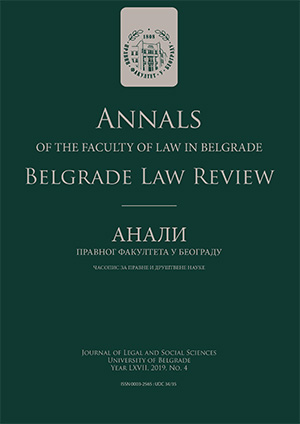TAX AND BRAIN DRAIN: JUSTIFICATION, POLICY OPTIONS AND PROSPECT FOR LARGE DEVELOPING ECONOMIES
TAX AND BRAIN DRAIN: JUSTIFICATION, POLICY OPTIONS AND PROSPECT FOR LARGE DEVELOPING ECONOMIES
Author(s): B. Bawono KristiajiSubject(s): Economy, Law, Constitution, Jurisprudence, Demography and human biology, Migration Studies, Fiscal Politics / Budgeting, Globalization
Published by: Правни факултет Универзитета у Београду
Keywords: Brain drain; Large developing economies; Bhagwati tax; Exit tax; Tax incentive;
Summary/Abstract: International migration has continued to escalate over the last three decades, creating a risk of brain drain in developing countries. This paper reviews the extent to which the use of tax instruments to address brain drain can be justified in developing economies with large populations. Furthermore, it explores and assesses tax policy options that may be undertaken to prevent the emigration of high-skilled individual, namely the Bhagwati tax proposal, exit tax, revenue sharing and tax incentives. Five things can be concluded from the assessment of several policy choices. First, there is no stand-alone tax policy that can optimally address brain drain, in the sense of reducing the number of high-skilled individuals who emigrate. Second, most policies put more focus on the element of fairness to compensate for the “loss” caused by the home country. Third, almost every available policy requires better coordination at the international level. Fourth, all policy options require closer collaboration with immigration agencies. Finally, each policy has the potential to produce unintended consequences.
Journal: Анали Правног факултета у Београду
- Issue Year: 67/2019
- Issue No: 4
- Page Range: 17-67
- Page Count: 51
- Language: English

